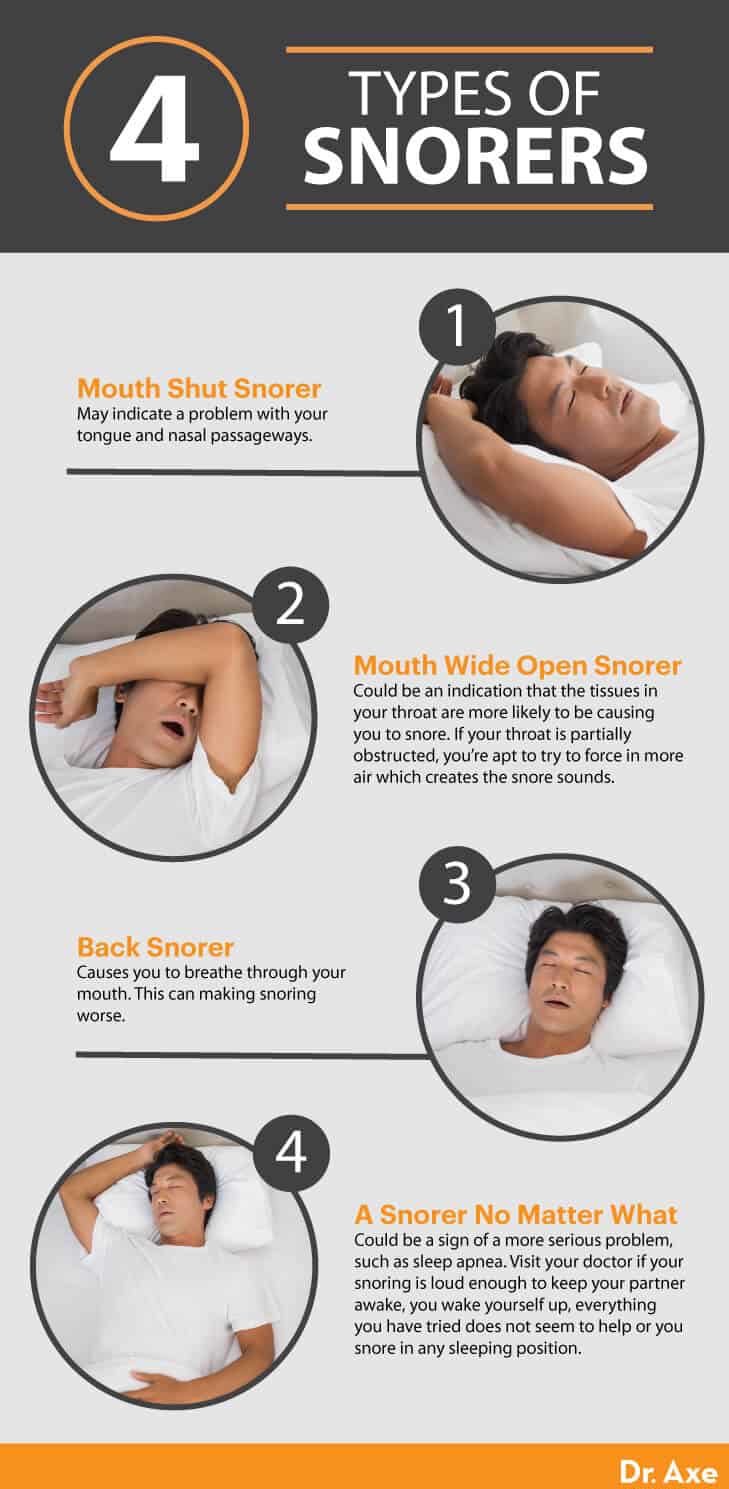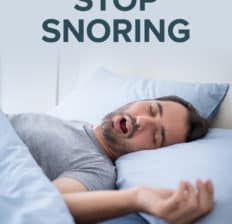This Dr. Axe content is medically reviewed or fact checked to ensure factually accurate information.
With strict editorial sourcing guidelines, we only link to academic research institutions, reputable media sites and, when research is available, medically peer-reviewed studies. Note that the numbers in parentheses (1, 2, etc.) are clickable links to these studies.
The information in our articles is NOT intended to replace a one-on-one relationship with a qualified health care professional and is not intended as medical advice.
This article is based on scientific evidence, written by experts and fact checked by our trained editorial staff. Note that the numbers in parentheses (1, 2, etc.) are clickable links to medically peer-reviewed studies.
Our team includes licensed nutritionists and dietitians, certified health education specialists, as well as certified strength and conditioning specialists, personal trainers and corrective exercise specialists. Our team aims to be not only thorough with its research, but also objective and unbiased.
The information in our articles is NOT intended to replace a one-on-one relationship with a qualified health care professional and is not intended as medical advice.
How to Stop Snoring: 11 Remedies That Work!
May 5, 2023

Have you ever been frustrated at your partner for keeping you up all night with loud snoring? Better yet, have you ever woken yourself up with your own snoring and wonder how to stop snoring?
Despite what you may think about yourself, everyone snores occasionally. It’s a natural occurrence due to the relaxed state your throat moves into during sleep.
If it’s severe, though, it can disrupt sleep patterns, cause insomnia, and lead to irritability in both the snorer and the one lying awake because of the snoring.
It’s important to note, however, that snoring could also be an indication of sleep apnea, a potentially life-threatening condition that should receive medical attention. Sleep apnea is typically caused by a breathing obstruction, which awakens the sleeper, at which point the person begins breathing again.
Normal snoring usually does not affect the quality of sleep as much as sleep apnea. If you suffer from extreme fatigue, sleepiness and exhaustion during the day, your problem may be more than just snoring, and you should get it checked out by a doctor.
As mentioned, snoring can cause insomnia, a big problem for many, with 9 percent to 15 percent of adults in the U.S. reporting insomnia affects their day-to-day lives.
So how do you stop this nasally, sleep-disruptive sound? It’s necessary to identify exactly how and why you are snoring if you want to know how to stop snoring. Once you do that, believe it or not, there are solutions to help eliminate snoring so everyone can get much-needed rest instead of being always tired.
How to Stop Snoring Naturally
What is snoring anyway? Snoring is due to the lack of freely moving air through the nose and throat during sleep. When this happens, the surrounding tissues vibrate, which produces the annoying snoring sound.
People who snore often probably have more throat and nasal tissue or “floppy” tissue, also known as uvala, that’s prone to vibrate more than others. Not only that, but the position of your tongue can also get in the way of smooth breathing.
Snoring also occurs when the throat muscles are relaxed. During sleep, the tongue falls backward toward the throat, and the walls of the throat may vibrate, which causes those snoring sounds you long to get out of your bedroom.
While we all need a good night’s sleep, including the non-snoring partner, if you can’t sleep due to snoring, it can lead to some serious health problems, such as:
- weight gain
- depression
- brain damage
- hormonal issues
- risk of heart disease and stroke
- increased blood pressure
- increased risk of diabetes
- accelerated aging
Here’s how to stop snoring naturally:
1. Side Sleeping
If your snoring problem is minor, this just might do the trick. The biggest difficulty may become how to keep you on your side. Using a body pillow could be useful in maintaining the position.
Ultimately, this position can prevent the relaxed and untoned muscles in the the throat from blocking the breathing passageways. An old remedy that could be useful is to tape a tennis ball to the back of your pajamas so you don’t roll onto your back. If you have a bed with a recline control, you can set the bed in an angled head-up position, which may open the nasal airway passages.
2. Peppermint Oil and Goldenseal
If your snoring occurs because of nasal or chest congestion, pure peppermint oil can help relieve the congestion. It’s been shown to be a great essential oil sore throat relief and congestion in the nasal passageways, which in turn could be how to stop snoring due to congestion issues.
Goldenseal is another supplement you can use to help relieve congestion in your chest and nasal passages and is typically found in powder, liquid or capsule form. You can even have a cup of herbal tea that contains peppermint or goldenseal. Just make sure you don’t have a tea with caffeine, as that can greatly interrupt your sleep.
3. Fenugreek
Digestion plays a big role in our sleep patterns and can cause snoring. Fenugreek is an amazing herb that can treat snoring from digestive issues, in particular caused by indigestion — an acid problem in the digestive system. These herbs can help rid your body of this acid and decrease your chances of snoring while you sleep.
Fenugreek has been shown to fight sleep apnea and improve digestive issues that lead to snoring.
4. Vitamin C
The sinuses can obstruct the airways, causing the mouth to open and the uvula, the fleshy extension at the back of the soft palate that hangs above the throat, to vibrate and create annoying all-night snoring. Vitamin C may help prevent this because we know it helps promote a healthy immune system. That healthy immune system can clear the sinuses.
Papaya, pineapple, which also contains sinus-fighting bromelain, broccoli and red bell pepper, to name a few, are the some of the best vitamin C foods.
5. Eucalyptus and Peppermint
Eucalyptus has long been around to help with chest colds. There are a few ways that you can apply eucalyptus oil to provide a snore-free night of sleep. Putting eucalyptus leaves in a steam inhaler and breathing it through your mouth or nose can help clear your sinuses.
You also could try using a steam bowl by putting your head over a bowl of pure hot water and covering it with a towel so you can inhale the steam. Add five drops of eucalyptus and five drops peppermint essential oils to the bowl.
Don’t forget that steam is hot and can burn you, so be careful. Do this just before bed to help clear out your airways and reduce inflammation in your nasal passages that may contribute to the snoring problem.
If you’re not a fan of the steam, a neti pot using the right solution of salts and pure water can do wonders, too, but don’t put essential oils in the neti pot, as this can burn the membranes of the nasal passages!
6. Oral Appliance
You may want to talk to your dentist about getting a dental appliance that can help change the opening of your airway so your tongue has enough room, avoiding an obstruction when you sleep.
The American Dental Association reports that devices worn only during sleep may be an effective treatment option and can help eliminate snoring altogether.
An oral appliance fits like a sports mouth guard or an orthodontic retainer. It supports the jaw in a forward position to help maintain an open upper airway.
7. Get Your Bodyweight Back to Normal
If you carry around extra body weight, this excess weight, especially around the neck, can cause the throat to narrow when you lay down. This creates a higher incidence of snoring.
For instance, in a study published in Lung India researchers found, “Neck circumference of snorers was significantly more than the neck circumference of non-snorers in all BMI groups.” This shows that neck circumference, which is more typical greater in those who are overweight, can play a role in snoring.
Reducing your weight can lead to healthier sleep in addition to other health benefits, and it’s one of the best solutions for people wondering how to stop snoring.
8. Consider Getting a Humidifier
Dry air can contribute to your snoring problem because dry air dries out the throat and nasal membranes, creating congestion. Congestion can restrict the natural breathing pattern and cause the tissues to vibrate.
A humidifier could help by eliminating the dry air and creating more comfort for the body, ultimately allowing for more natural breathing. You can even add essentials oils to the humidifier.
9. Limit or Avoid Alcohol
Alcohol relaxes most people, and because snoring occurs when the throat and tongue are relaxed, alcohol can add to the problem due to the extreme relaxed state it may cause. This could actually make your snoring worse.
Limit your alcohol consumption, or avoid it altogether to get a much better night’s sleep.
10. Try Regular Throat and Tongue Exercises
A stronger throat and tongue may help avoid over-relaxation of the throat area.
Try putting your upper and lower molars gently together. Open your mouth, focusing on pressing your molars wide apart but not to the point of overstretching. Repeat this 10–15 times, and you will start to feel the back of your mouth opening up.
11. Avoid Dairy Products and Big Meals Late at Night
Drinking milk or having other dairy products can make snoring much worse because it leaves a layer of mucus in your mouth and throat. This mucous adds to the blockage of the airways.
Also, try to avoid eating a big meal just before bedtime. When your stomach is full, it can push up against your diaphragm and affect your rhythmic breathing.
What Type of Snorer Are You?
It helps to determine what type of snorer you are in order to really pinpoint how to stop snoring. Taking the time to determine this and why you snore can help you find the right solution and get a good night of rest consistently.
To figure this puzzle out, ask your partner to help you keep a sleep diary to monitor your snoring. By observing patterns in your snoring, you can often determine the reasons why you snore and what makes it worse. With the help of your partner, let’s see if you can pinpoint when you snore by how you sleep.
1. Mouth Shut Snorer
If your mouth stays shut while you snore, it may indicate a problem with your tongue and nasal passageways.
2. Mouth Wide Open Snorer
If you snore with your mouth wide open, this could be an indication that the tissues in your throat are more likely to be causing you to snore. If your throat is partially obstructed, you’re apt to try to force in more air, which creates the snore sounds.
3. Back Snorer
Sleeping on your back often causes you to breathe through your mouth. This can making snoring worse.
4. A Snorer No Matter What
If you snore in any position no matter what, it could be a sign of a more serious problem, such as sleep apnea. Please visit with your doctor if your snoring is loud enough to keep your partner awake, you wake yourself up, everything you have tried does not seem to help or you snore in any sleeping position.
You may need a more specified approach or more individualized details from a health care provider to determine how to stop snoring in this case.

What Causes Snoring?
1. Fitness Level
If you’re obese or out of shape, this can exacerbate the problem of snoring.
Why? Overeating and/or lack of exercise can lead to an increase in fat around the throat. This extra fat can cause the airway to be more narrow and affect normal breathing by creating an obstruction in the oropharynx during sleep.
In this case, snoring can be even more pronounced. This particular cause is notably higher in men than women because men tend to put on weight in their neck more than women.
When you lay on your back, the fatty tissue adds pressure onto the airway, blocking it off. Maybe this is why rolling over can sometimes help.
The good news is exercising, losing weight and treating obesity can be all it takes to end your snoring, and that will create better overall health too.
Snoring and excessive weight can affect children as well. A study published in the Journal of Paediatrics and Child Health revealed that snoring and sleep apnea were significantly higher in obese children.
2. Menopause
I know that the last thing women want to hear is yet another problem that menopause symptoms cause, but as women get older, it’s common that their muscle tone diminishes and causes them to put on some weight. By the time women have reached the age of approximately 70, they’re just as likely to be snorers as men of the same age.
This is just one more reason why staying fit and healthy, as a lifestyle, is the way to go.
3. General Aging
As you reach middle age, typically 45–64, your throat becomes narrower, and the muscle tone in your throat decreases. Of course, growing older is part of life, but there are things you can do to make a difference in your snoring patterns or possibly eliminate snoring altogether, such as positive lifestyle changes, bedtime routines and, believe it or not, throat exercises.
4. It’s True: Men Do Snore More Than Women
Why do men snore more than women? It’s because men have narrower air passages than women.
A narrow throat, a cleft palate, enlarged adenoids and other physical attributes that contribute to snoring are often hereditary.
5. Nasal and Sinus Problems
Blocked airways or a stuffy nose make inhalation difficult and create a vacuum in the throat, leading to snoring. Keeping a clean house, free of dust, and a healthy body can help eliminate snoring as well as the nasal and sinus problems.
6. Alcohol, Smoking and Medications
Alcohol intake, smoking and certain medications, such as tranquilizers and diazepam, can increase muscle relaxation, leading to more snoring. Of course, smoking causes major problems with breathing in our lungs.
As I’m sure you know, it’s best to stop smoking right away. This includes electronic cigarettes too.
7. Sleep Position
Studies revealed that sleep positioning plays an important role in snoring and obstructive sleep apnea syndrome.
Subjects were given positioning therapy using a head positioning pillow to see if snoring sounds were reduced in a study published by Scientific Reports. In most patients, significant improvement was shown whether overweight or normal weight with the use of this pillow.
As noted above, lying on the back may cause more throat obstruction, so a special pillow may be how to stop snoring for some.
In another study from Amsterdam, researchers found the following:
An average of 56 % of patients with obstructive sleep apnea (OSA) have position-dependent OSA (POSA), commonly defined as a difference of 50 % or more in apnea index between supine and non-supine positions. A great deal could be gained in treating patients with POSA with [positional therapy].
8. Asthma
We know that sleep apnea often comes with snoring, but it’s been reported, to no surprise, that sleep apnea is prevalent in those who have asthma. In fact, these conditions have been on the rise in recent years.
Possible shared characteristics include intermittent hypoxia, nerve reflex, inflammation and leptin. Other links include medication, nose diseases, smoking, obesity and gastroesophageal reflux disease.
That means using asthma natural remedies may also be how to stop snoring for asthma suffers who also snore.
Conclusion
A good night of sleep is not impossible, but you do have to take the time to figure out what the problem is. If you have a partner, work together to solve the problem.
Try some of these methods, and through a process of elimination, you may discover that the awesome, ever-so-desired seven to nine hours of sleep is in your future, consistently.
If you’re pregnant, breastfeeding, taking medication or have a medical condition, make sure to check with your doctor first prior to using any essential oils or herbal remedies.
Remember, if you’re wondering how to stop snoring, first determine what type of snorer you are — mouth shut snorer, mouth wide open snorer, back snorer or snorer no matter what. Then, here’s how to stop snoring naturally:
- side sleeping
- peppermint oil and goldenseal
- fenugreek
- vitamin C
- eucalyptus and peppermint
- oral appliance
- weight maintenance
- humidifier
- limit or avoid alcohol
- throat and tongue exercises
- avoid dairy and big meals late at night








